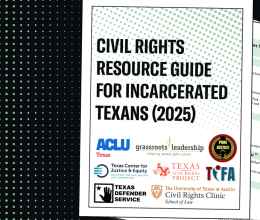
- Private Prisons Save Taxpayer Dollars: Private prison corporations offer themselves as a “solution” to fixing budget crises by saving “hardworking taxpayers’ dollars.” For example, the GEO Group claims a 20 to 30 percent cost savings in facility development and a 10 to 20 percent cost savings in facility management. Some reports have shown cost savings, but not all of them have – and the reliability of at least one of these studies has been questioned due to the researcher’s connection to the private prison industry. Based on research done in Hawaii, Arizona, and New Jersey, the ACLU report shows “most objective cost studies show little or no cost saving to taxpayers coupled with an increased safety risk” and that housing inmates in private prisons “may be more costly.” The only real way to save hardworking taxpayer money is to find alternatives to incarceration for nonviolent crimes, something the private prison industry lobbies directly against!
- Private Prisons Benefit Local Economies: Private prison companies argue that private prisons spur economic growth, offering jobs to residents and increasing revenue for towns. Again, the ACLU report highlights studies that have shown that opening new prisons is not “worth the investment for struggling rural communities.” For example, some counties only receive $2 per prisoner per day from the private prison operator, all while the prison might be obtaining subsidies and receiving municipal services like water and sewer services, which cost taxpayers money. In contrast, the report highlights a private corporation in Arizona making almost $64 dollars per prisoner per day, and Corrections Corporation of America (CCA) raking in almost $90 per day for each detained immigrant in a San Diego facility. Compare that to the $2 mentioned above, and it is clear that most of the money is not being returned to the counties and towns.
- Private Prisons Rehabilitate Prisoners and Reduce Recidivism: When profit is your main goal, creating programming to help a large part of your prime market population never need your services again would not be a good model. Effective rehabilitation would do just that to the private prison industry. In order to make more money, some private prisons cut corners by eliminating training programs that would promote rehabilitation. Some so-called cost-savings may also make prison environments even more violent and dangerous through over-crowding and under-trained guards. The report documents many religious groups’ opposition to private prisons, mainly because the for-profit model is in direct odds with effective rehabilitation and reintegration into society.






